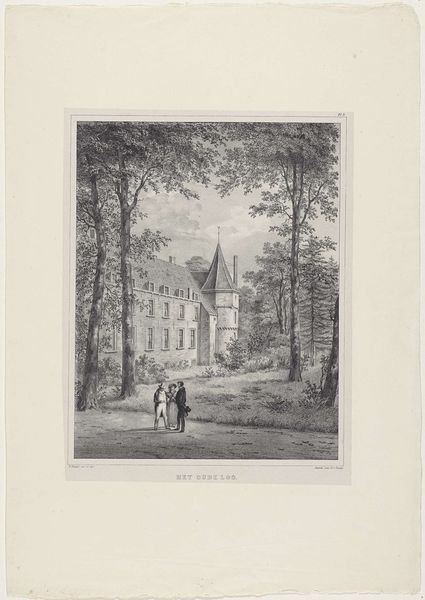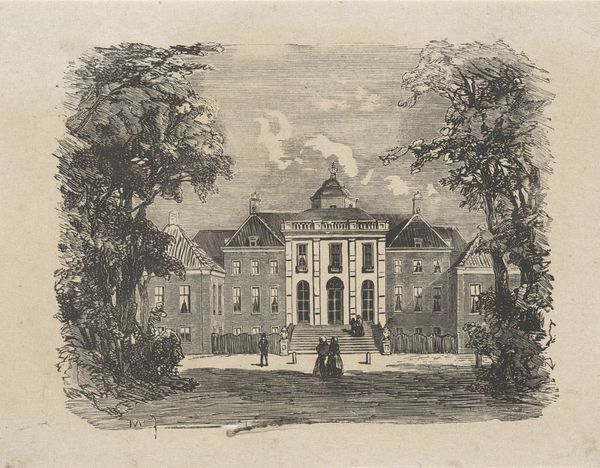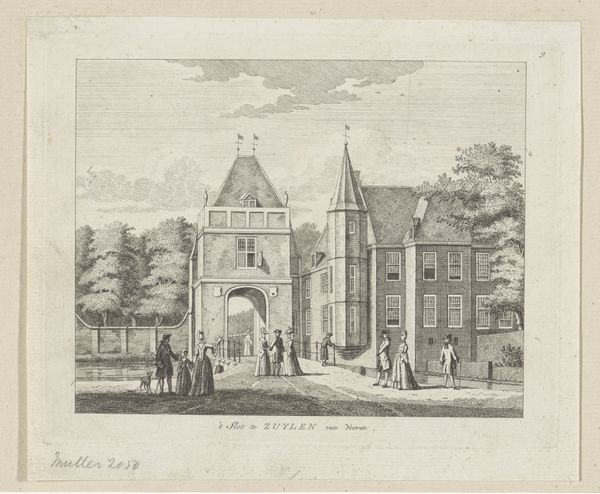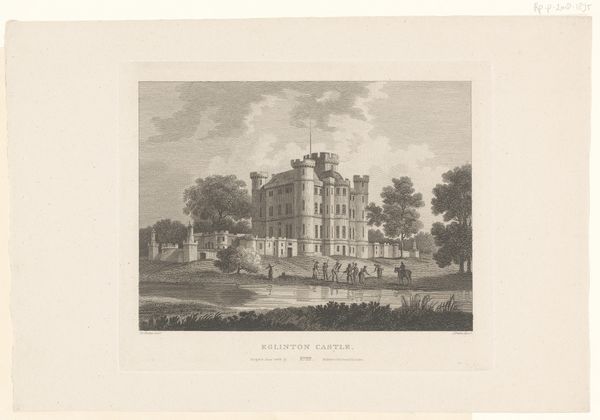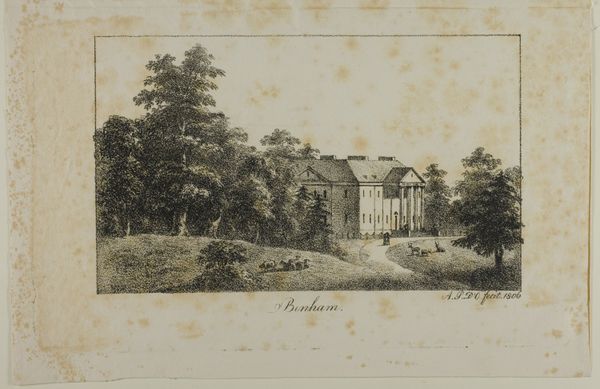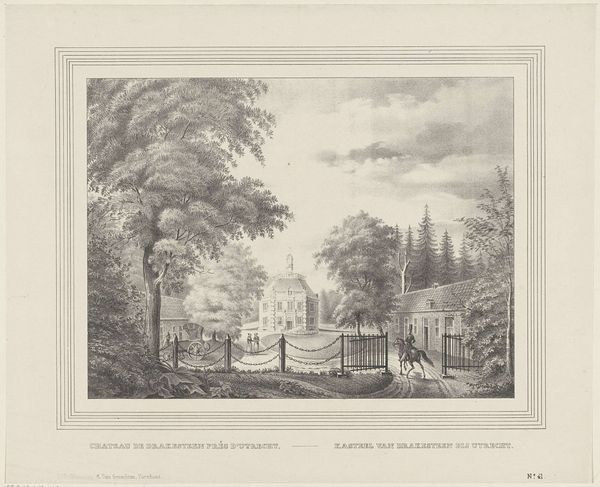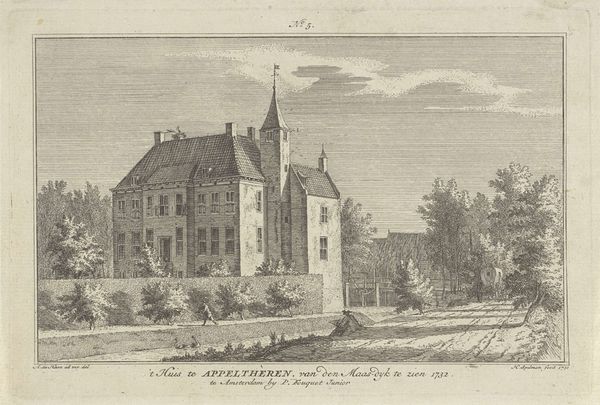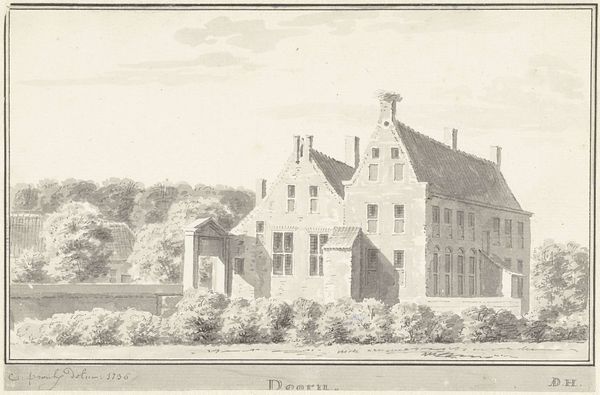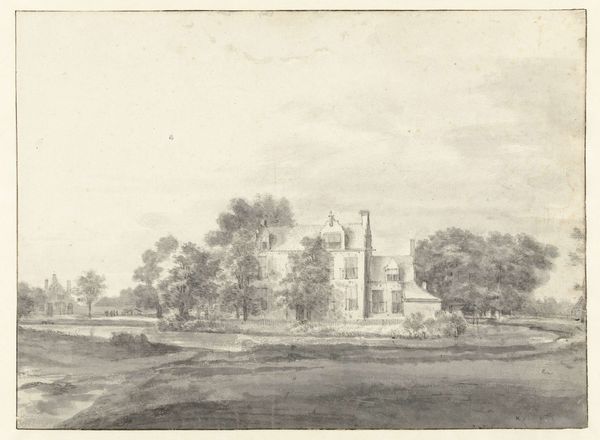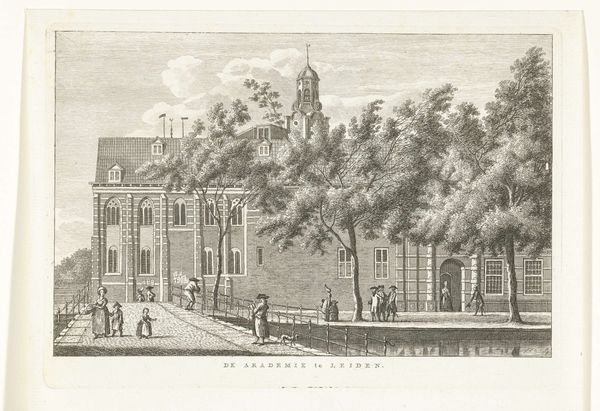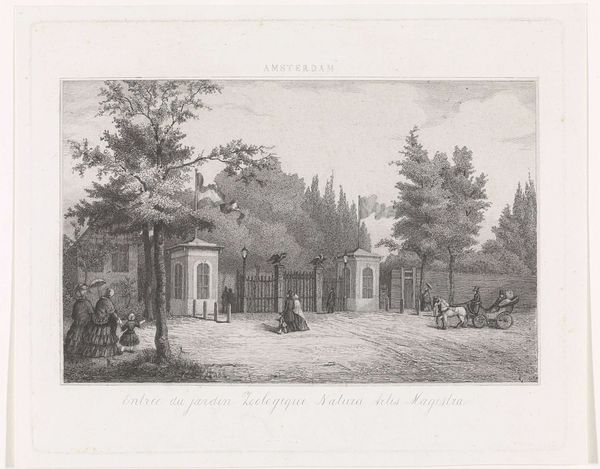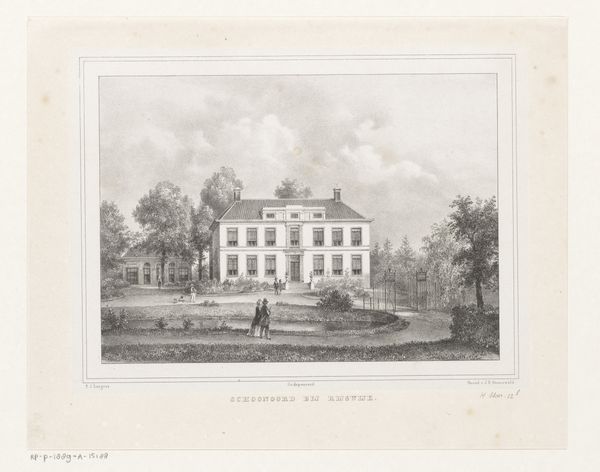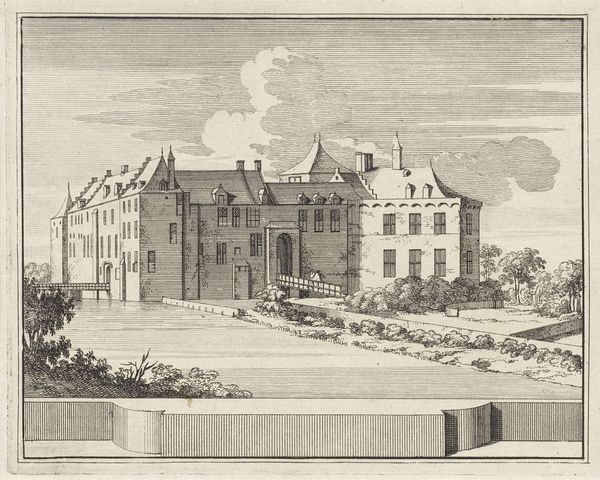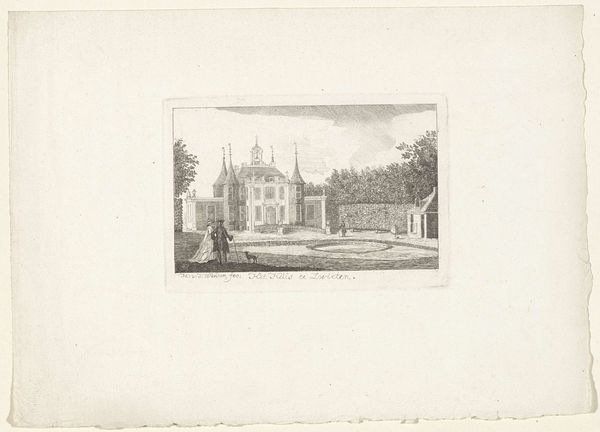
print, engraving
#
neoclacissism
# print
#
landscape
#
form
#
19th century
#
line
#
pen work
#
cityscape
#
engraving
Dimensions: height 297 mm, width 370 mm
Copyright: Rijks Museum: Open Domain
Christian Henning etched this view of Biljoen Castle sometime in the late 18th or early 19th century. An etching like this is a mechanically reproduced image, printed onto paper from an etched metal plate. The original image would have been created by drawing into a wax ground covering a metal plate, then bathing it in acid. Look closely, and you'll see that the technique lends itself to fine lines and shading built from many small marks, all of which must be made by hand. The labor involved is considerable; you get the sense of Henning hunched over the plate, carefully building up the image. But here, that work is placed in the service of representing aristocratic leisure. This kind of print was meant to circulate, to give a wider audience a taste of high society. The etching process itself is a product of nascent industrialization, but the image reflects a pre-industrial world, one based on the ownership of land and labor. Henning presents the castle, and the family that lived there, as figures of permanence and authority.
Comments
No comments
Be the first to comment and join the conversation on the ultimate creative platform.
